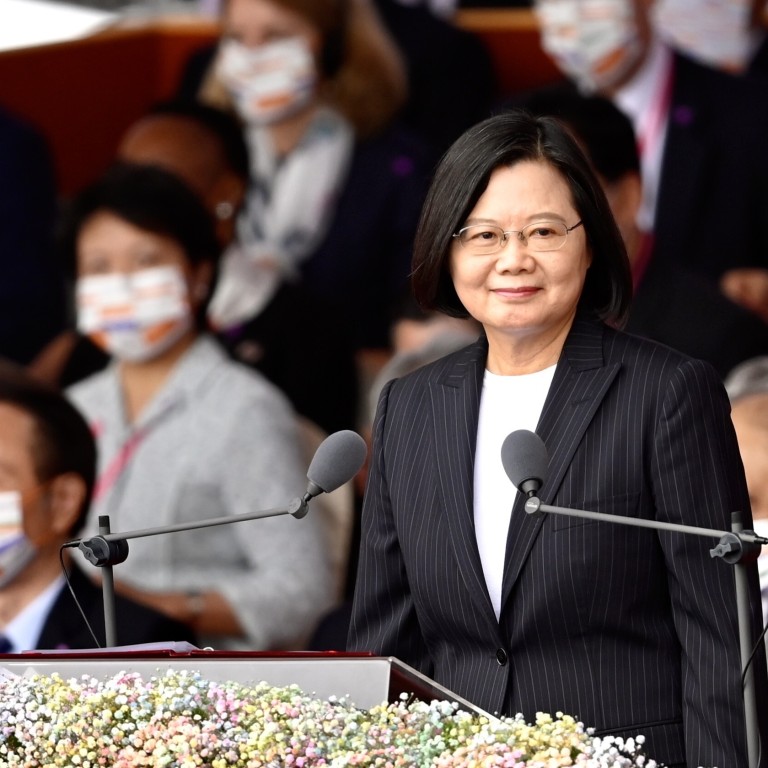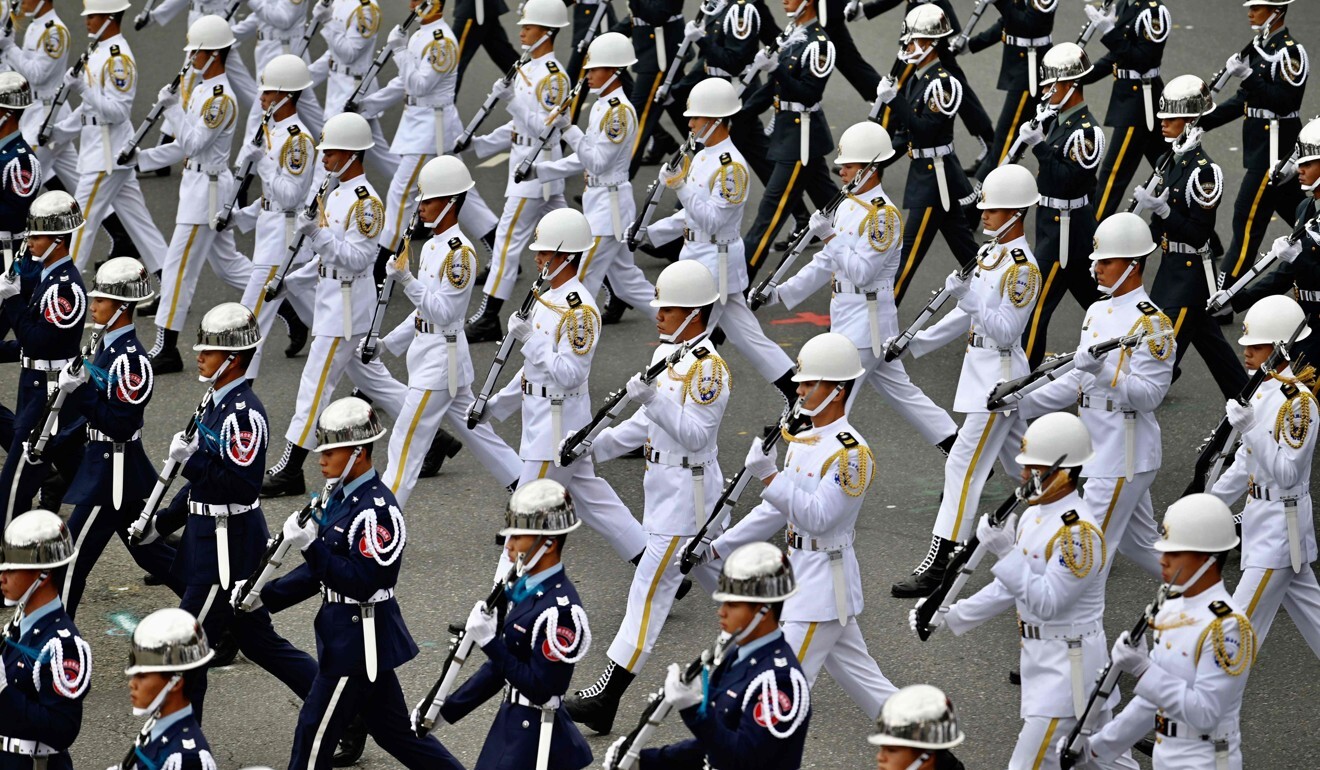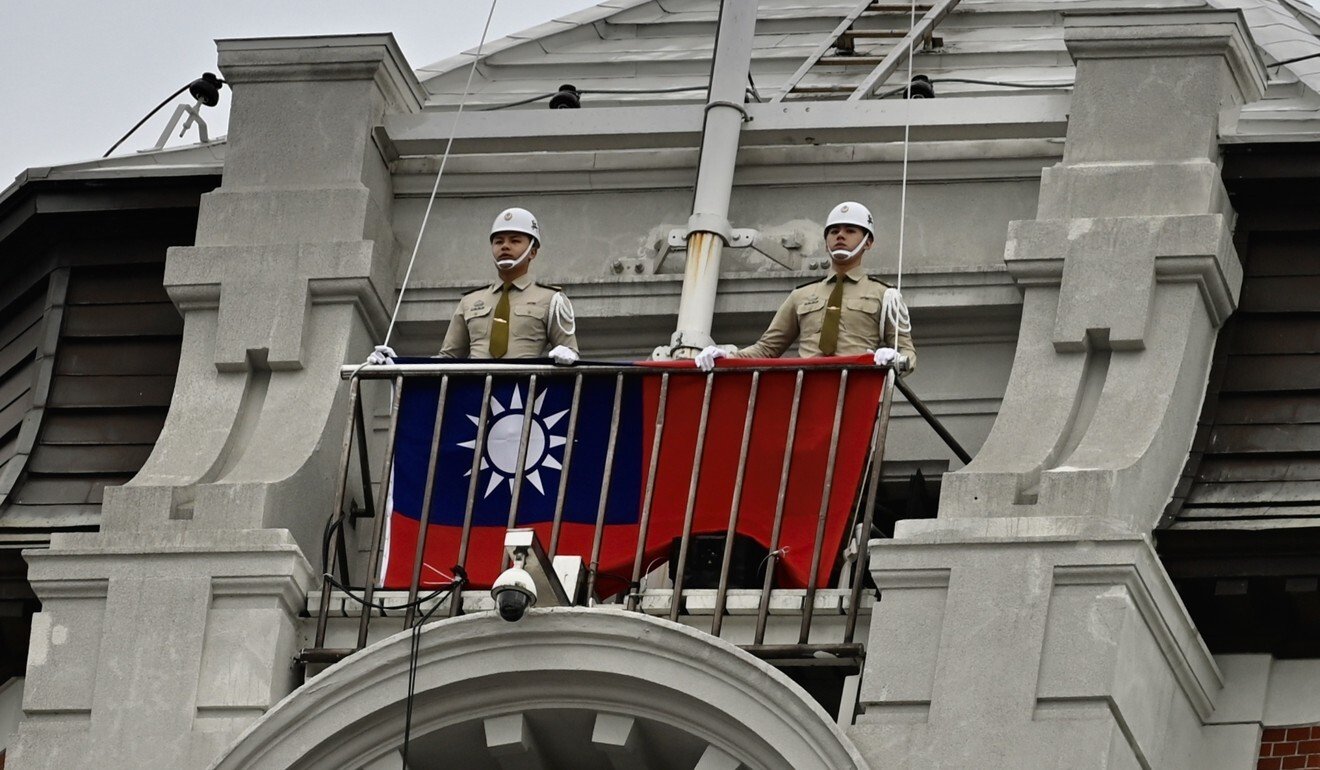
Taiwanese President Tsai Ing-wen calls for ‘meaningful’ dialogue with mainland China
- Despite Tsai’s comments, Beijing is unlikely to budge because she has not accepted the one-China principle
- Tsai uses address to mark Double Tenth holiday to say both sides should look for ways to coexist in peace
Taiwanese President Tsai Ing-wen called on Saturday for “meaningful dialogue” with mainland China as long as it was willing to resolve antagonisms and improve cross-strait relations.
She also said a solid defence capability is the only way to guarantee Taiwan’s security and maintain regional peace.
But some observers said it was unlikely that the mainland would accept her offer because she had made no reference to the one-China principle that Beijing insists must be the basis for talks between the two sides.
In her address for the Double Tenth holiday on Saturday, which marks the foundation of the Republic of China, Tsai said the most pressing cross-strait issue was to discuss how the two sides can live in peace and coexist based on mutual respect, goodwill and understanding.
“As long as the Beijing authorities are willing to resolve antagonisms and improve cross-strait relations, while parity and dignity are maintained, we are willing to work together to facilitate meaningful dialogue,” she said, adding this is what the people of Taiwan want.

Beijing, which sees Taiwan as a breakaway province that must be reunited with the mainland, by force if necessary, has suspended official exchanges with Taipei since Tsai, from the independence-leaning Democratic Progressive Party, was elected in 2016 and refused to accept the one-China principle.
Since then it has conducted a series of war games near the island, sent planes into its air defence identification zone to put pressure on Tsai and also poached seven of the island’s last diplomatic allies.
China-US relations: PLA slams ‘provocative action’ as US warship sails through South China Sea
Tsai said: “We are committed to upholding cross-strait stability, but this is not something Taiwan can shoulder alone; it is the joint responsibility of both sides.
However, she also promised to boost the island’s defences in the face of increased pressure from Beijing, saying: “Adequate preparation and reliance on the determination and strength of solid national defence capabilities is the only way to guarantee Taiwan’s security and maintain regional peace.
“Harassment by air and sea from [the People’s Liberation Army] has raised tensions in the Taiwan Strait.
“In order to avoid potential conflicts due to miscalculations or accidents, we will address threats to regional peace and stability by upholding our principle of neither fearing nor seeking war.”

Tsai also noted that President Xi Jinping recently told the United Nations General Assembly that the mainland will never seek hegemony or a sphere of influence, and said she hoped this is the “beginning of genuine change” from Beijing.
“At this critical time when the entire world has grave concerns about Indo-Pacific and cross-strait developments, if Beijing can heed Taiwan’s voice, change the way it handles cross-strait relations, and jointly facilitate cross-strait reconciliation and peaceful dialogue, I believe that regional tension can surely be resolved,” she said.
But some observers said the speech was unlikely to shift Beijing’s position.
Mainland China casts long shadow over Taiwan’s ‘double tenth’ celebrations
“Tsai hoped to offer an olive branch to Beijing by offering to have meaningful dialogue with the other side, but the conditions she set – including the mainland’s willingness to resolve antagonisms, improve cross-strait relations, maintain parity and dignity – would make it impossible for Beijing to accept her offer,” said Wang Kung-yi, chairman of the Taiwan International Strategic Study Society, an independent think tank.
“What Beijing wants to hear is her willingness to accept the one-China principle.”
Tso Chen-dong, a political-science professor at National Taiwan University, said the actions of Tsai and her government did not match the call for cross-strait dialogue, citing recent warnings that Taiwanese attending the recent Straits Forum on the mainland risked jail.
The event has been held in Xiamen in Fujian province since 2009, but last month the Taiwanese government warned that those attending the event might violate the island’s security laws.

